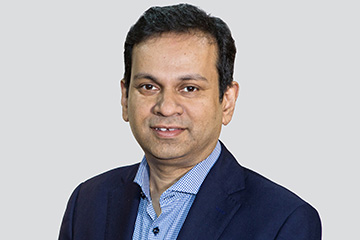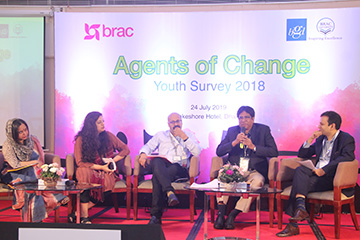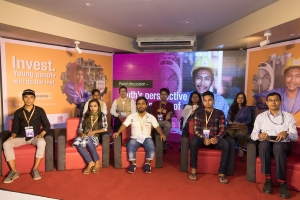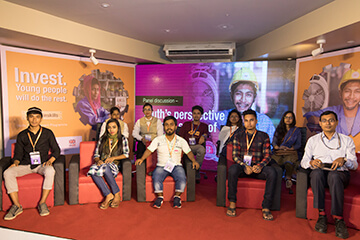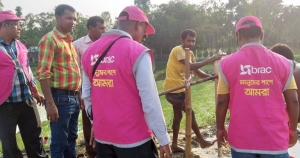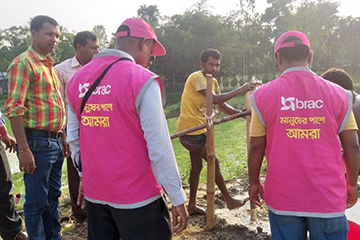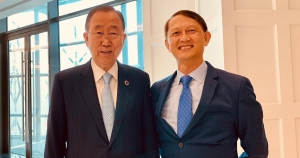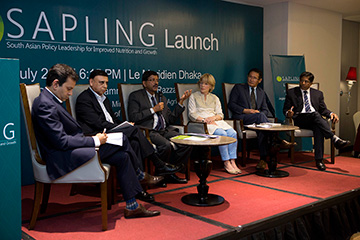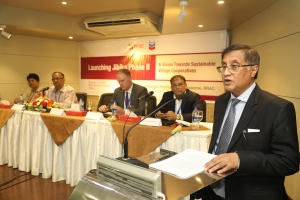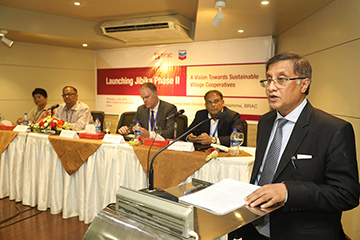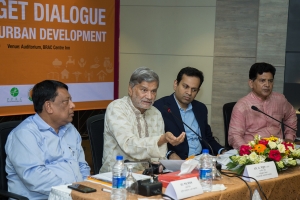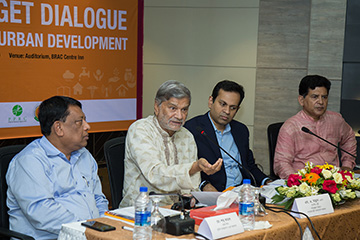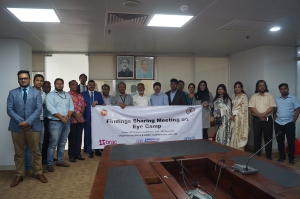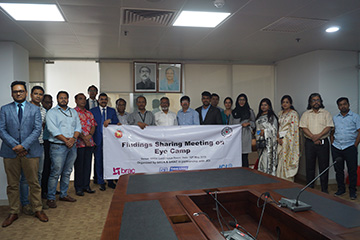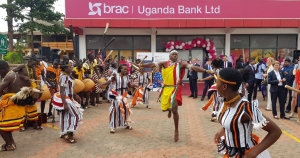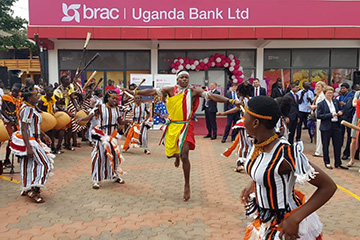
BRAC
BRAC Bangladesh welcomes Asif Saleh as its new Executive Director
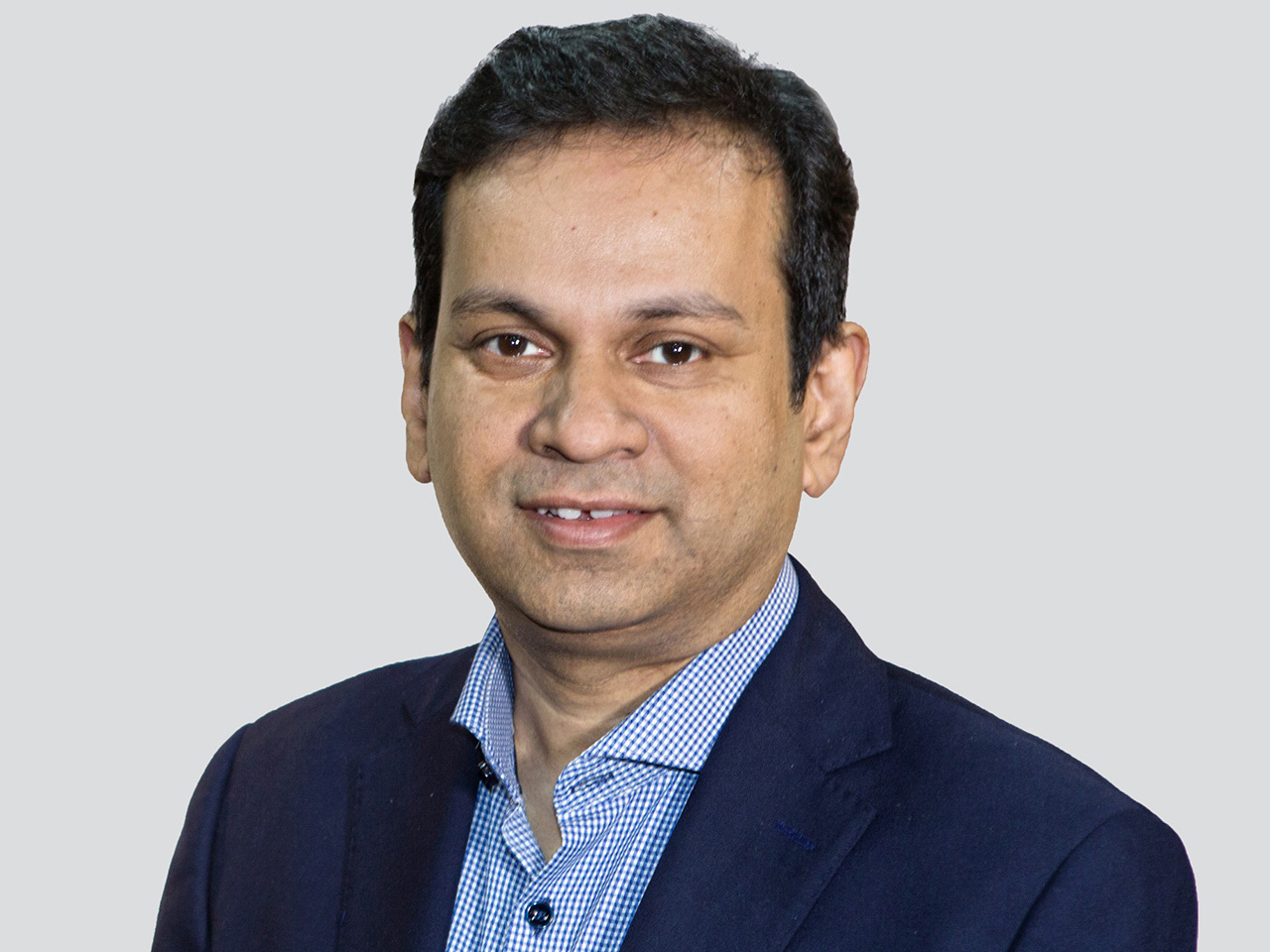
Asif Saleh has been appointed the new executive director of BRAC Bangladesh with effect from 1 August 2019.
He brings with him a diverse multi-sectoral experience in senior leadership roles in private, public and non-government sectors with proven track record of effectively managing interfaces of development programming, operational and financial sustainability and building effective partnerships, both within and outside BRAC.
“BRAC Governing Body is confident that Asif Saleh is the right choice to steer BRAC Bangladesh ahead, driving innovation and positive transformation and ensuring that BRAC stays rooted in our mission, meeting the needs of the people of Bangladesh,” said Sir Fazle Hasan Abed, founder and chairperson of BRAC.
Asif Saleh has been deeply anchored in driving the strategic direction of BRAC. He joined BRAC in 2011 and took up an increasingly important role in leading advocacy for social change, information technology, communications and social innovation. He has been instrumental in ensuring that BRAC addresses emerging development challenges in the areas of urban poverty, youth skills development, inclusive growth and migration. As the senior director of the empowerment programme cluster, he led BRAC’s new programmatic areas namely, the urban development programme, human rights and legal aid services, skills development programme and migration programme.
"Unique, priceless and transformational would be the words that best describe my experience at BRAC over the past eight years. I am inspired everyday by the perseverance and pragmatism of the people we work with and how they turn around their lives against all odds. I feel honoured and humbled to be asked to lead BRAC Bangladesh and taking ahead our vision of building an equal world. As a team, we are committed as ever to continue our legacy of being grounded, working closely with the local communities, our partners and supporters and complementing the development efforts of the Government of Bangladesh,” Asif Saleh commented.
Prior to joining BRAC, he worked as a policy specialist for the Access to Information (A2i) Programme at the Prime Minister’s Office. As part of the government’s Digital Bangladesh initiative, he led the policy effort to expand affordable broadband connectivity across Bangladesh and devised the government's m-governance strategy. He was also a key part of the Union Digital Centre team that created digital service centres in every union in Bangladesh. Since then, he has actively promoted the role of technology and frugal innovation in the development sector. He spent 12 years in Goldman Sachs in different fin-tech roles and institutional client sales in New York and London, ending his term there as an executive director. He has also worked in Glaxo Wellcome, IBM and Nortel.
Asif Saleh is an active member in a range of international networks and alliances, advocating inclusive achievement of the Sustainable Development Goals. He was selected to be a Young Global Leader by the World Economic Forum in 2013. Asif was also recognised for his work by Asia Society’s Asia 21 programme in 2008, the Bangladeshi American Foundation in 2007, and was selected as an Asia 21 Fellow in 2012.
He chairs BRAC IT Services Limited and is on the boards of BRAC Bank and BRAC Net. He is also a board member of multiple non-profits, such as 1 Degree Initiative, Spreeha, Institute of Informatics and Development, and Maya.
He holds a bachelor’s degree in computer science and an MBA in management and marketing from the Stern School of Business, New York University.
BRAC Youth Survey: Educated youth favours govt jobs, less educated seeks overseas migration
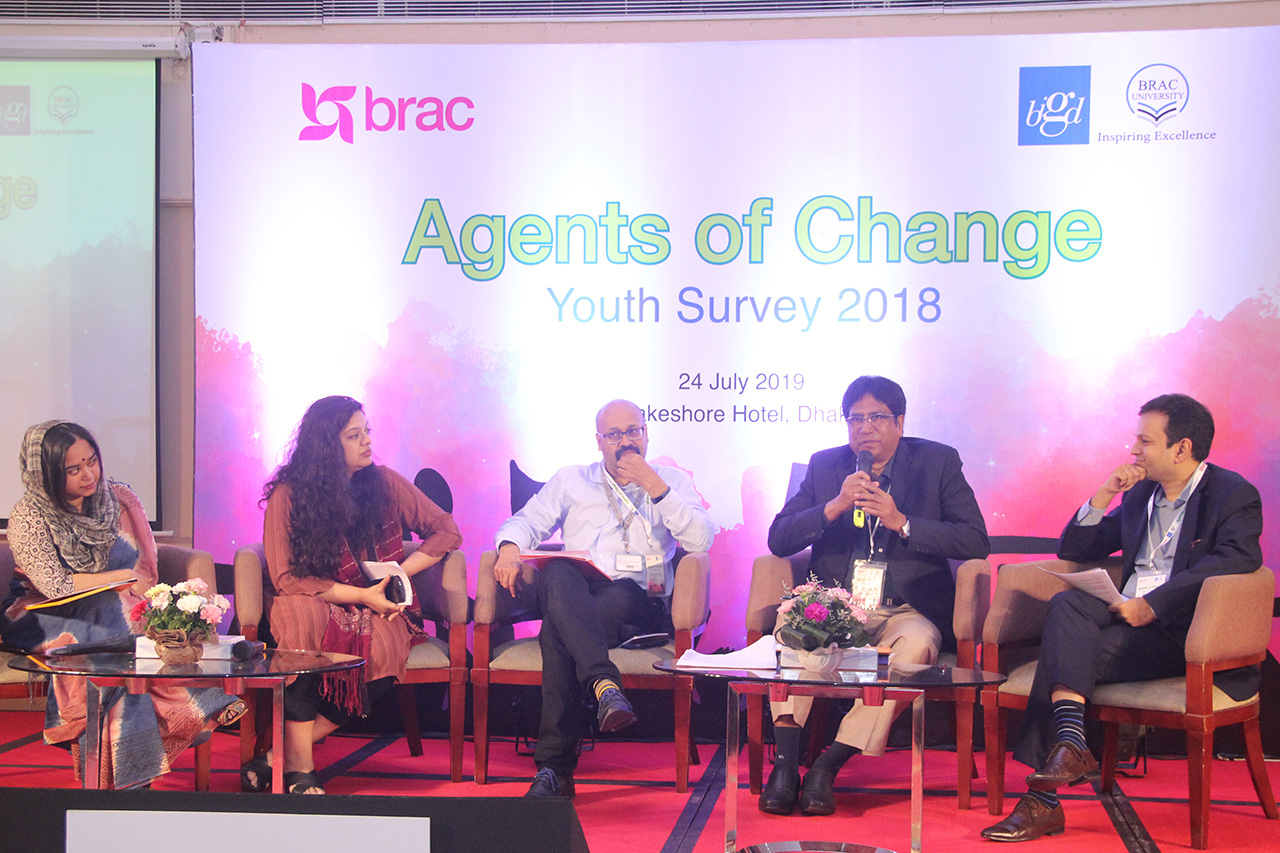
Most Bangladeshi youths (57% female; 42% male) see government jobs as the most viable career. Many educated young people from well-off families want to establish their own businesses. On the other hand, youths with no or less institutional education want to find work abroad to secure better earning. Moreover, only 5% of the respondents believe that their educational qualification will help them secure employment.
However, more women than men were found to be concerned about their children's wellbeing. As much as 34% women put their children's wellbeing ahead of any other issues of their life. Only 11% men are as much concerned about their children.
These are part of the findings of a survey among Bangladeshi youths BRAC conducted in 2018. The findings of the survey were released in an event on Wednesday (24 July 2019) at Lake Shore Hotel in the capital. Zahid Hasan Russel, lawmaker and state minister for youth and sports, Dr Md Jafar Uddin, acting secretary to the ministry of youth and sports, Asif Saleh, acting executive director of BRAC, and Dr Imran Matin, executive director of BRAC Institute of Governance and Development (BIGD), participated in a discussion at the programme.
Currently, Bangladesh is enjoying a unique historical period of "demographic dividend" with its working age population (15-59) way bigger than the non-working age population. At the same time, according to the Commonwealth's Global Youth Development Index Bangladesh is among the worst performing countries. Although there awareness about this issue is rising, there is a shortage of evidence-based information about what the country's young people are thinking and aspiring for. This youth survey is an effort to fill that gap.
BRAC, BRAC Institute of Governance and Development (BIGD) and BRAC University conducted the Youth Survey 2018 involving 4200 respondents. Bangladesh was divided into five regions, from which 30 upazilas were randomly selected. Two unions/wards were selected from the upazilas, from which one village or neighbourhood (mahalla) were taken. Finally, from each village/neighbourhood, 14 respondents (7 women and 7 men) were randomly selected. Following this process, a total 4,200 respondents aged 15-35 years were surveyed.
The survey focused on the self-identity, aspirations, institutional education, skills, choice and the preparation to enter employment of the respondents. Among the respondents, 7% male and 4% female had higher education and 14% had vocational training. Of the respondents only 16% were confident about their English language and computer skills. The confidence level among women and less educated respondents were lower than the average. Around 40% had access to internet, although urban spaces offered better access than the rural ones.
Of the educated youth, 57% women and 42% men want government jobs. Around 90% of the young men studied up to the higher secondary level and less were employed. The more educated the respondents are, the later they start earning. Only 5% women with education from 5th grade to upto higher secondary level are earning. Around 90% of the respondents who do not study, are not working to earn or not in any training programme are women.
Around 20% respondents are interested in securing a job abroad, but only one-third of them are actively planning to do so. 31% male, compared to only 7% female respondents, are interested to work abroad.
Male respondents enjoy greater liberty regarding choice of their educational institutions, friends and occupation, mobility and spending money than women. Only 40% women have freedom of mobility, which is just half compared to that of men. All respondents are seriously concerned about two issues: gender-based violence (early marriage, dowry, sexual harassment and rape) and drug addiction.
Welcoming the BRAC Youth Survey 2018, state minister Zahid Ahsan Russel said, "Such surveys enrich our experience and help identify potential work areas. We are trying to overcome the problems gradually. Women's participation in wage earning work is increasing; more than 60% primary school teachers are women. The government has made a decision to set up youth research centres in different regions. These centres will offer assistance to the young people based on their problems, potentials and needs."
Youth and sports acting secretary Dr Md Jafar Uddin said some of the findings in this survey may look like problems, but they actually are not. Rather they should be regarded as challenges. "By overcoming these challenges, the nation will go forward through effective collaboration between the public and private sectors."
BRAC acting executive director Asif Saleh said BRAC has long been engaged in the skill development of young people, "Now we are on to introducing school-based learning programmes that will contribute to their future skill development."
To know more visit here.
BRAC trained 400 thousand youths in employable skills
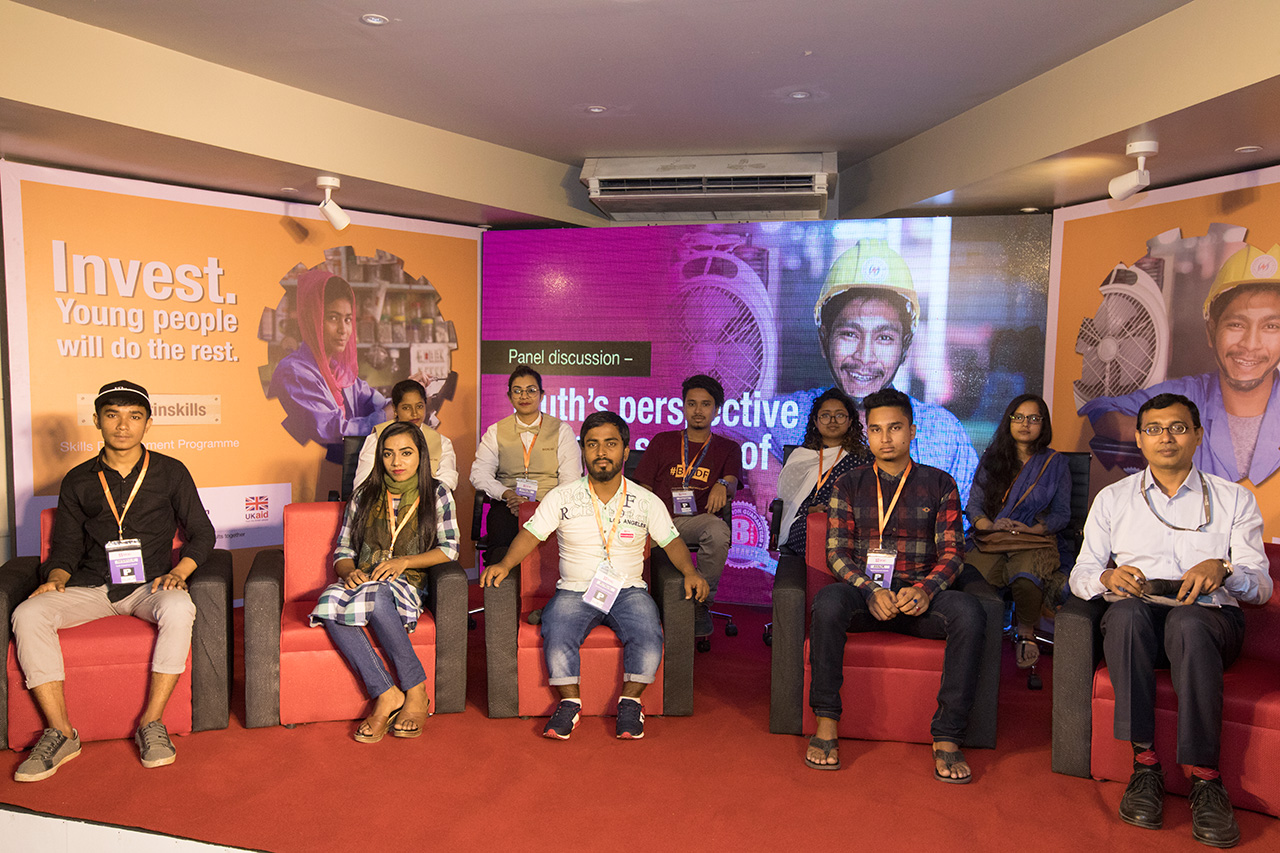
No less than 400 thousand youths, a large portion of which is women, received training in a number of employable skills in non-agriculture sector from BRAC in last eight years and have found decent employment or started own initiatives.
BRAC officials revealed this information at an event today on Tuesday (23 July 2019) at the BRAC Centre in Dhaka. BRAC organised this event as a part of its celebration of World Youth Skills Day. The programme comprised an exhibition of BRAC skills development initiatives, launch of a publication titled “Star Toolkit: Introducing a Successful Entrepreneurship” and a series of panel discussions.
Faruque Hossain, chairman, National Skills Development Authority, was present as the chief guest at the panel discussion titled “SDG-8: Youth, skills and employment”. Tapan Kumar Ghosh, chairman, Bureau of Non-formal Education, and KAM Morshed, director, BRAC, participated in the discussion among others. Asif Saleh, acting executive director, BRAC, moderated the discussion.
Angela Naumann, first secretary, Department of Foreign Affairs and Trade, Australian High Commission, Bangladesh, Mashfique Ibne Akbar, private sector development adviser, Department of International Development, British High Commission, Dhaka, Zhigang Li, social sector specialist, Asian Development Bank, Tomoo Hozomi, country representative, UNICEF Bangladesh, participated in another panel discussion on financing of skills development initiatives.
BRAC Skills Development Programme is currently working with focus on three areas, namely, skills training and other services, systems change with the government and industry partnerships, and community engagement. At present it is operating eight projects focusing on the communities living in the cities, municipalities and Rohingyas and host community in Cox’s Bazar. These current projects are: Skills training for advancing resources (STAR), Promoting skills and productivity enhancement for resilience (PROSPER), Promoting business Incubation for small entrepreneurs (PROMISE), Pro-poor growth of rural enter-prises through sustainable skills-development (PROGRESS), Alternative learning programme for out of school adolescents (ALP), Partnership reinforcement for integrated skills enhancement (PRISE), Skills development project for Rohingyas, and Apprenticeship-based training for host community.
BRAC’s Skill Development Programme began its activities with the STAR project, which has developed a unique model reforming and institutionalising the ancient tradition of skills training through apprenticeships under a master craftsman. Under STAR project, BRAC officials find out skilled people who run their own business. After they go through specially designed training, selected trainees start apprenticeships under them. The trainers receive an honorarium for running the six-monthly course. This model on one hand creates opportunity for underprivileged youths for quality skill training, while helps keep costs low compared with institution-based training. After finishing apprenticeships, BRAC assists the youths to get decent jobs or start their own business.
Under the STAR project, BRAC trained 30 thousand youths up to December 2018. Of them 95 per cent found decent employment. For women trainees the impact is even bigger, reducing child marriage 65 per cent. Post training, the apprentices saw six times increase in both income and employment.
BRAC developed this unique model jointly with ILO, UNICEF, Department of Non-Formal Education of Bangladesh government and follows the National Technical and Vocational Quality Framework (NTVQF).
The experts at the panel discussions stressed effective collaboration between the government, donors, non-governmental actors and private sector for expanding the opportunities for employable skills development. They said to achieve SDG targets there is no alternative for skill development.
BRAC established Skill Development Programme with a socio-economic background of an increasing youth population, large gap in employable skills and training, risky migration of unskilled and semi-skilled labour force, increasing violence against girls and women, and expansion of urban spaces and their population.
Targeting both the domestic and overseas labour market, BRAC is currently giving 15 kinds of skills training in non-agriculture sector, which are: Tailoring and dress making, mobile phone servicing, wooden furniture making, beauty salon, refrigeration and AC servicing, basic electronics, graphic design, IT support technician, aluminum fabrication, motorcycle servicing, wooden furniture designing, electrical house wiring, block and batik, screen printing, jori and chumki work.
BRAC allocates BDT 50 lac for flood relief across the country
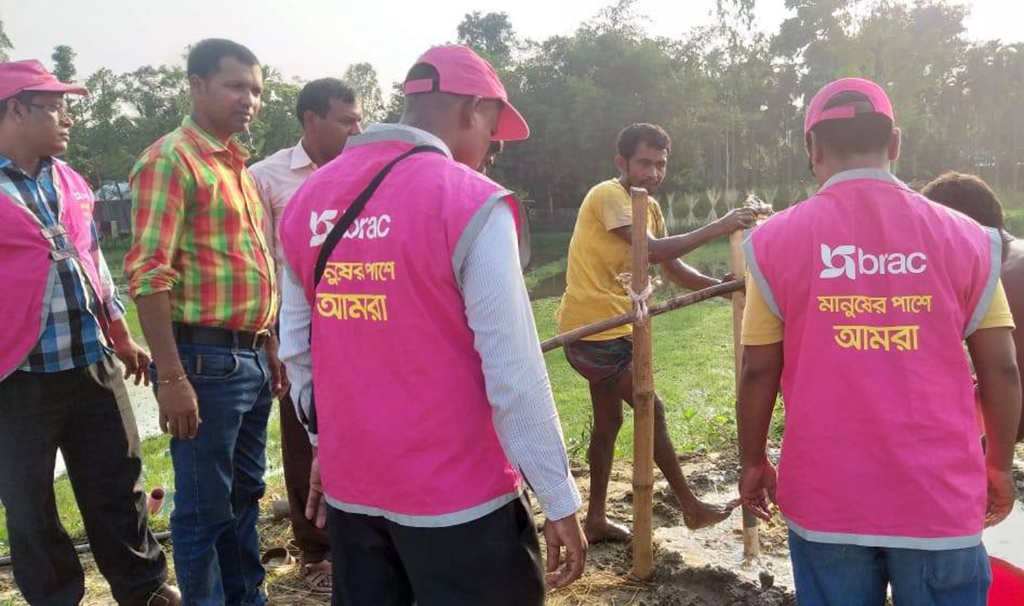
Non-governmental development organisation BRAC has allocated BDT 50 lac for flood relief operations across Bangladesh. Until 22 July, the organisation has distributed dry food and cash assistance among 8,659 families in 34 worst affected upazilas across 11 districts. With the new allocation, the operation will now be expanded to all flood-affected districts.
Although water is receding from some of the districts, the flood could linger for a longer time, especially in the northern and central regions of the country. In this emerging humanitarian crisis, BRAC has launched a coordinated effort in order to ensure timely response in the form of relief, deploying several thousand relief workers in some of the worst affected districts.
BRAC has expanded water, sanitation and hygiene support to schools, embankments and highways in Bagura and Gaibandha districts where hundreds of thousands of people have taken refuge. Everyday, new sanitary latrines, bathing cubicles and tube-wells are being built to cope with the rising demand.
“We are focusing on remote areas, especially where conducting relief operations have become difficult as a result of damaged communication system. We are doing a quick needs assessment of affected families, so that we can expand our operations rapidly,” said Asif Saleh, Acting Executive Director of BRAC.
People in Ulipur of Kurigram, Sarishabari of Jamalpur, Kalmakanda and Barhatta in Netrakona, Sylhet Sadar and Sariakandi of Bagura district are the latest upazilas to come under BRAC’s relief operations coverage.
"We are coordinating our operations to complement the government's relief efforts. If the situation does not improve soon, all concerned should come forward to support various government and non-government efforts,” Asif Saleh added.
Ban Ki-moon meets Vincent Chang to discuss global citizenship

BRAC University President and Vice-Chancellor Vincent Chang met Chairman of the Global Commission on Adaptation and former UN Secretary General Ban Ki-moon. They discussed global citizenship, and opportunities for collaboration between BRAC University and the Ban Ki-moon Centre for Global Citizens. Based in Vienna, the Ban Ki-moon Centre for Global Citizens was jointly founded by the former UN Secretary General and Heinz Fischer, the Austrian President from 2004-2016, and focuses on empowering youth and women.
Their meeting concluded with a warm gesture from Ban Ki-moon. The former UN Secretary General fondly recalled signing one of the first diplomatic treaties between his country, South Korea, and Bangladesh, a newly independent nation then. At the time, he was working as a junior diplomat officer of South Korea. Vincent Chang thanked Ban Ki-moon for inviting him despite his tight schedule. Chang invited Ban Ki-moon to visit BRAC University to encourage students to participate further in the global arena.
Ban Ki-moon was in Dhaka to attend the Global Commission on Adaptation meeting, which was inaugurated by the Prime Minister Sheikh Hasina, and attended by dignitaries from around the world. This was the former secretary general’s first visit to Bangladesh after leaving the UN.
South Asian platform for robust nutritional growth launched
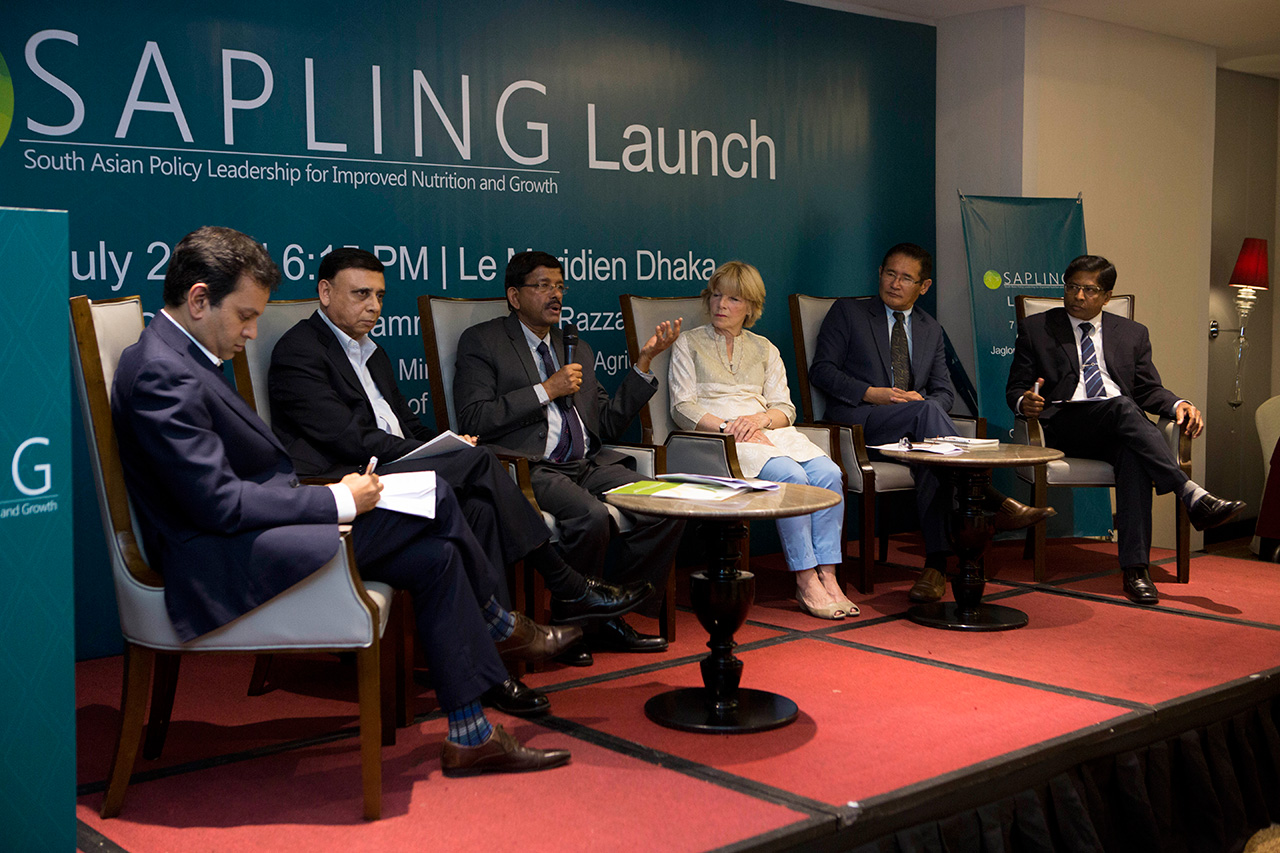
The South Asian Policy Leadership for Improved Nutrition and Growth (SAPLING), a multi-stakeholder advocacy platform for healthy, affordable and accessible diets all over South Asia, was launched today on Sunday (7 July 2019) in Dhaka. SAPLING platform is funded by the Bill & Melinda Gates Foundation with its secretariat hosted by the Health, Nutrition and Population Programme (HNPP) of BRAC. The platform aims to be an exclusive regional mechanism which collates relevant evidence, brings greater visibility to nutrition issues and promotes action by engaging with policy making processes and leadership at the national level. The Launch ushered in discussions on cross border perspectives regarding food systems and nutrition priorities for South Asia.
Dr Purvi Mehta, deputy director and head of Asia for Agriculture at Bill & Melinda Gates Foundation, Dr Kaosar Afsana, professor at BRAC James P Grant School of Public Health at BRAC University, and Saiqa Siraj, coordinator of SAPLING and programme head of HNNP, BRAC, among others, addressed the audience at the launch event.
Asif Saleh, acting executive director of BRAC, moderated a panel discussion on the topic of “Healthy, affordable and accessible diets for all across South Asia: Where do we stand?” Dr Akhter Ahmed, country representative of International Food Policy Research Institute (IFPRI) Bangladesh, Dr Sandy Thomas, director of the Global Panel on Agriculture and Food Systems for Nutrition, Dr Basanta Kumar Kar, country director of Project Concern International, India, Dr Tayan Raj Gurung, senior specialist, Ministry of Agriculture and Forests, Bhutan, Dr WMW Weerakoon, director general of the Department of Agriculture, Ministry of Agriculture, Sri Lanka, and Dr Morseda Chowdhury, associate director of HNPP, also participated in the panel.
Youth involvement in food systems businesses, food trade within South Asia and political commitment to nutrition were especially focused in the panel discussion.
Throughout the next year, SAPLING will continue its role as a policy advocate, knowledge hub and facilitator. The platform will accumulate high quality research and case studies from the region to develop papers on the status quo of food systems in South Asia and policy recommendations. Latest news and resources from SAPLING can be found on www.sapling-initiative.org.
Launching of Jibika Phase 2: A vision towards sustainable village cooperatives

A launching ceremony of phase II of the Jibika project, a collaboration between BRAC and Chevron, was held on 4 July 2019 in Dhaka. Representatives of GoB, BRAC, Chevron, IDEA and VDO were in attendance.
Muhammed Ahsanul Jabbar, Additional Secretary, Energy and Mineral Resources Division, Ministry of Power, Energy & Mineral Resources, Government of the People’s Republic of Bangladesh attended as chief guest. Also present were Ismail Chowdhury, Director, Corporate Affairs, Chevron Bangladesh; Alexander Yelland, General Manager, Corporate Affairs, Chevron Asia South; and Anna Minj, Director, Community Empowerment, Gender Justice & Diversity, Integrated Development Programme, BRAC. Matiul Islam Nowshad, CMgr, Senior Director, Operations and Strategic Initiatives, BRAC chaired the event.
The programme highlighted the achievements of Jibika Phase I, followed by an outline of Phase II’s vision and objectives to strengthen the governance of the 110 Village Development Organisations (VDOs), developed under the project. Muhammed Ahsanul Jabbar lauded the partnership between BRAC, the world’s largest development organisation, and Chevron, Bangladesh’s largest international oil company, in bolstering the socio-economic development of vulnerable communities, residing near Chevron-operated gas fields in Greater Sylhet. He also mentioned that initiatives like Jibika supports Government’s vision to achieve sustainable development goals (SDGs).
Mr. Ismail Chowdhury said Chevron’s corporate social responsibility programmes impact thousands of lives in north-east Bangladesh. Jibika, the first project under the Chevron Bangladesh Partnership Initiative is an example of a successful collaboration between BRAC and Chevron that has been supporting VDOs and promoting entrepreneurship amongst its members in the Sylhet, Moulavibazar and Habiganj districts.
Alexander Yelland acknowledged the Department of Cooperatives for their efforts in making a positive and sustainable change in the communities where Chevron operates. He appreciated the great work already done towards the capacity development and governance of these VDOs. Mr. Yelland also mentioned that Chevron’s social investment programmes primarily focus on economic development, health and education, thereby supporting several Sustainable Development Goals (SDG) adopted by the UN.
Anna Minj, conveying her wishes for the lasting success of Phase II, congratulated all the 110 VDOs for their efforts in leading the organisations towards sustainability.
Matiul Islam Nowshad mentioned the role being played by Jibika and other projects under the Integrated Development Program in various rural areas of Bangladesh, empowering underprivileged people with the right knowledge, resources and capacity. He emphasised on BRAC’s mission to continue working for underdeveloped areas and the marginalised. He expressed his desire to see many such impactful collaborations between BRAC, GoB and private sector organisations like Chevron.
The Jibika project was designed to promote entrepreneurship for sustainable income growth of marginalised farming households around Chevron-operated gas field areas in Greater Sylhet. Phase I of the project successfully established 110 Village Development Organisations were successfully built, which later achieved registration from the Department of Cooperatives. Starting with a seed money of 3-5 lacs, each VDO now has an average operating capital of 6 lacs. BRAC and its implementing partner IDEA have also facilitated intensive trainings on leadership, fund management, cattle and vegetable rearing, etc. for the communities. From the year 2015-2019, about 20,000 people in the community have benefited from the Jibika project. Following the successful completion of phase I, the phase II of the project is designed to further strengthen the governance and management of the Jibika cooperatives and help them achieve long-term sustainability by 2022.
Pre-budget dialogue on pro-poor urban development
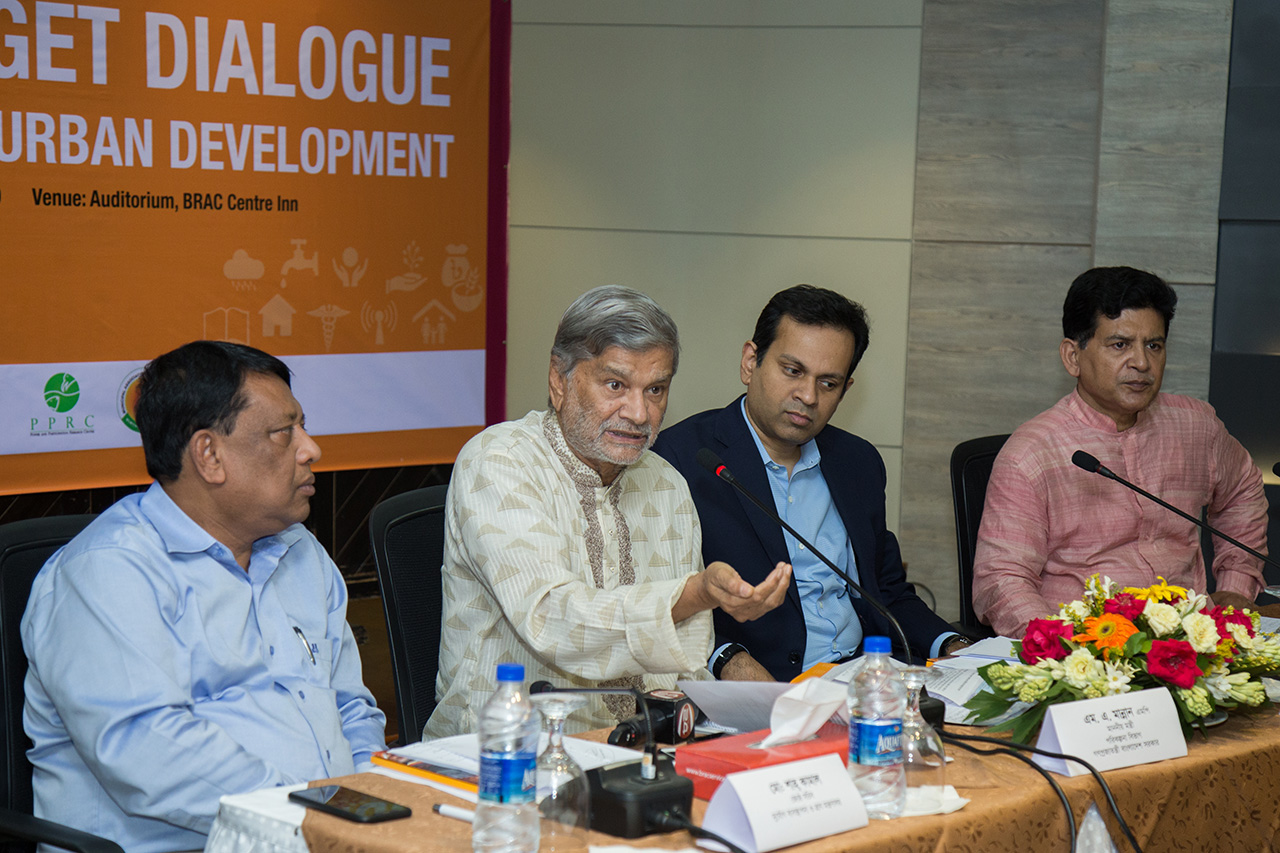
Insufficient public investment poses major challenge in tackling urban poverty
Inadequate government allocation, shortage of manpower, outdated laws and rules unable to address present needs, flawed development plans and programmes are plaguing the municipalities as they strive to provide different services to the ever increasing urban population. While the Seventh Five-year Plan of the Bangladesh government emphasises urban development and reduction of urban poverty, a number of issues, namely boosting economic development, undertaking effective strategy to achieve universal growth, and ensuring increasing public investment, remain as major challenges as the country strives towards achieving middle-income status.
Speakers and experts made these observations at a pre-budget dialogue on Monday (20 May, 2019) organised at BRAC Centre in the capital. World's number one development organisation BRAC, Municipal Association of Bangladesh (MAB), and Power and Participation Research Centre (PPRC) arranged the event.
M A Mannan, minister of planning and lawmaker, was present at the dialogue as the chief guest. S M Ghulam Farooque, senior secretary of the local government ministry, Md Shah Kamal, senior secretary of the disaster management and relief, Dr Shamsul Alam, senior secretary of Planning Commission, and Md Shahid Ullah Khandaker, secretary of housing and public works ministry were also present as guests at the event. Asif Saleh, acting executive director of BRAC chaired the event, moderated by PPRC executive chairman Dr Hossain Zillur Rahman.
Planning minister M A Mannan said, “The present government has undertaken a number of projects to provide housing to the urban poor, which include construction of multi-storeyed buildings, allocation of land, and housing loans. Several development projects including 'Dhaka environmentally sustainable water supply project,’ urban infrastructure development projects to build and maintain streets, footpaths, drainage systems, and projects to increase resilience of buildings against disasters, are going on. There will be adequate allocation in the national budget of 2019-20 to complete these projects.”
Local government expert Dr Tofail Ahmed, director of International Centre for Climate Change and Development Dr Saleemul Huq, MAB chairman and Bera municipality mayor Md Abdul Baten, joint general secretary and Madaripur municipality mayor Khalid Hossain, and BRAC Urban Development Programme's head Hasina Mushrofa, gave expert opinions among others at the dialogue. Representatives from other government and non-governmental organisations, Asian Development Bank, World Bank, Department for International Development (DFID), and other donors, universities, and media also spoke at the event.
Madaripur municipality’s mayor, Khalid Hossain, gave the keynote presentation on the challenges and future of pro-poor urban development of Bangladesh. It mentioned that to provide different services to the over 21.6 million dwellers of 327 municipalities across Bangladesh, there are only 43,000 permanent and 22,000 temporary employees. A number of recommendations to boost the municipal services forwarded in the presentation include significant increase in municipal budget, reform of municipal laws and rules to fit present day needs, provision of staff salary and benefit from the revenue component of the budget, special emphasis on pro-poor urban housing, effective waste and sludge management, and improvement in water supply system and infrastructure.
Local government expert Dr Tofail Ahmed said, “A general increase in the budget will not solve the problem. The wave of urbanisation has now hit the villages and is shrinking them. So we have to revisit our current development strategy. Here in Bangladesh, any development work is done in a sluggish speed, so a general talk about pro-poor development will not bring much fruit.”
MAB chairman and Bera municipality mayor Md Abdul Baten said, “We are constantly trying to put our limited resources to the very best use. But that itself is not enough. How is it possible to operate when the local government does not have even 2% of the share of the national budget?”
BRAC's acting executive director Asif Saleh said, “Public-private partnership initiatives can be undertaken to finance housing for the urban poor people. Also we should give special focus to tackle the increasing pressure of rural migrants on the urban space and fire hazards.”
Majority of bus drivers have some form of visual impairment
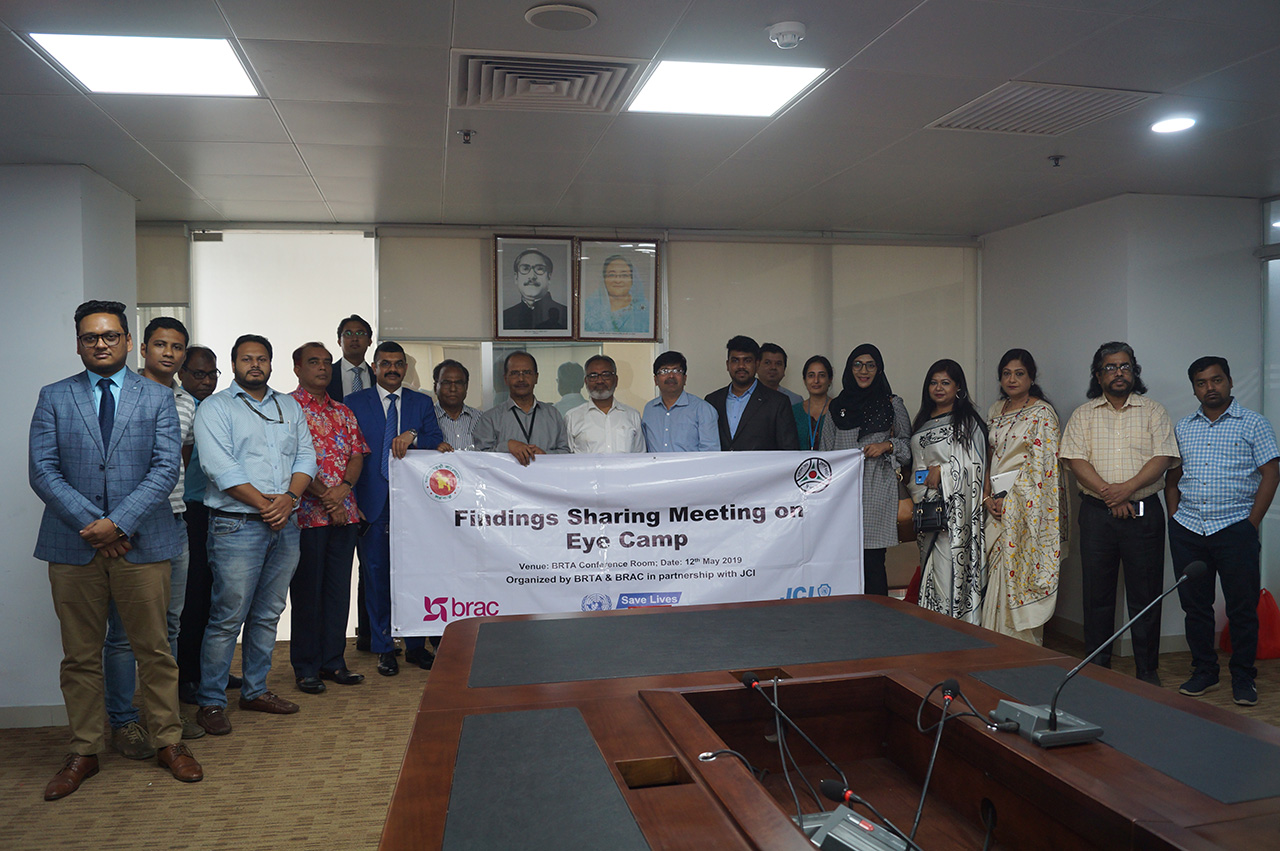
Around half of Dhaka city’s bus drivers and conductors are suffering from some form of visual impairment, while 72% of them have never been to an eye doctor. Every day, 21% of the city’s bus drivers and their helpers work shifts from 12 to 16 hours. 40% of drivers work eight to 12 hours a day. In these circumstances, reducing road accidents poses to be an impossible task. These were the outcomes of a discussion held on 12 May, 2019 at the BRTA Head Office in Banani.
The discussion was held to observe the fifth Global Road Safety Week. The event was organised by BRAC Road Safety Programme and Junior Chamber International (JCI) Dhaka West. Present was the director of BRAC’s road safety programme Ahmed Najmul Hussain, director of BRTA Sheikh Muhammad Mahbub-e-Rabbani, World Health Organisation’s representative Dr Tara Kessaram, JCI’s president Irfan Islam, and the chairman of Bangladesh Road Transport Owners Association Rustam Ali Khan.
On 23-24 April, BRAC and JCI collaborated on an eye care drive, where 1,200 bus drivers and conductors were provided with free eye care and doctors’ consultation. The service was provided by 30 doctors and medical assistants from the National Eye Science Institute and Hospital. The findings from the eye care drive were presented at the discussion.
The previous event for an eye care drive done earlier was hosted by Kamran Ul Baset, the head of Road Safety and Driving School at BRAC. The session delineated that 1,200 individuals were given care, out of which 91% were bus drivers and conductors. About 4% of recipients were motorbike and private car drivers, while 1% were drivers of heavy carrier vehicles. 5% of the drivers were over the age of 60 years, while 4% of the drivers were between the ages of 18-24. In the two-day long drive, glasses and medication were given to 76% of the recipients. 12.6% of individuals received surgical treatment, while 4.10% received medication only.
“More initiatives on drivers’ eye care are necessary,” said Sheikh Muhammad Mahbub-e-Rabbani, Director, BRTA.
JCI’s president Irfan Islam Said, “We plan to keep this initiative going throughout the year.”
BRAC Microfinance transforms into regulated bank in Uganda
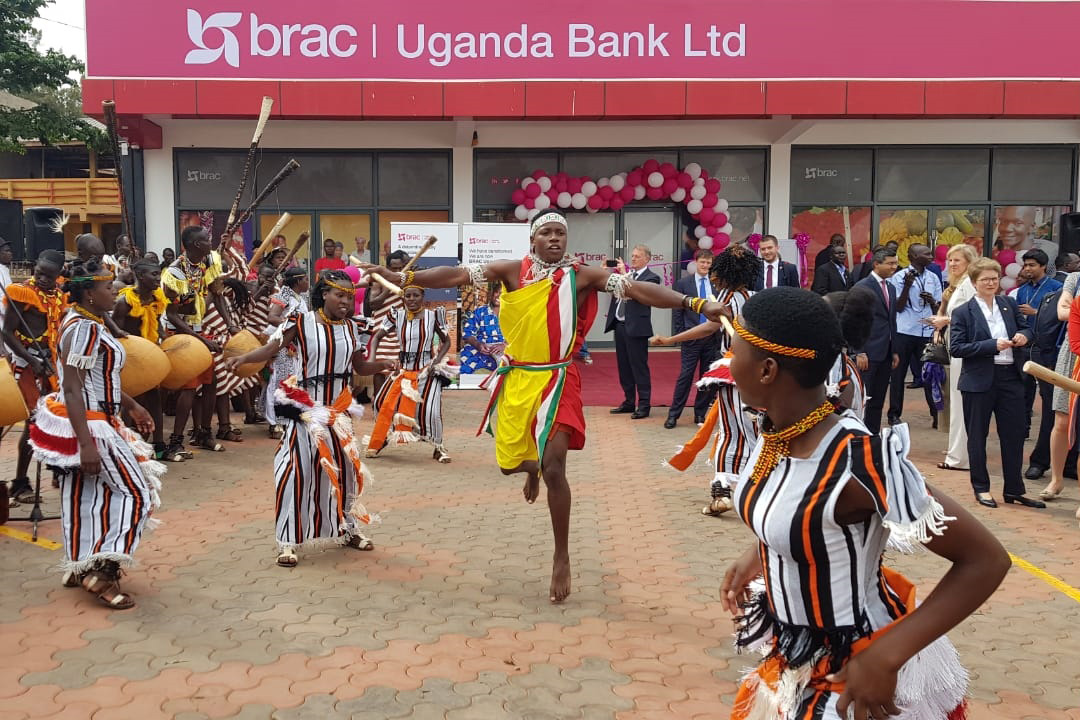
BRAC, the largest microfinance provider in Uganda, is transforming as a Tier 2 Credit Institution (CI) to broaden the range of financial services it provides to Uganda’s low-income communities. On behalf of the president, First Deputy Prime Minister General Moses Ali formally inaugurated the newly licensed institution - BRAC Uganda Bank Ltd (BUBL) at a ceremony held at the bank’s Kabuusu branch on April 25th 2019. Evelyn Anite, the State Minister of Finance for Investment and Privatization was also present at the ceremony.
BRAC started its microfinance programme in Uganda in 2006, growing its footprint to 163 branches across 84 districts with more than 200,000 clients. As part of its commitment to ensuring greater financial inclusion, especially for marginalised women in rural and low-income communities, BRAC has been pursuing a change in its regulatory status that would allow it to expand the scope of its financial services. The transformation will enable BRAC Uganda Bank Ltd to offer savings accounts, money transfer, insurance and other financial services in addition to its existing credit products to the people of Uganda.
In his remarks, First Deputy Prime Minister General Moses Ali said, “BRAC has a specific focus on women, youth and rural population. I am very much pleased that these are also the three priority areas of the comprehensive strategy that the Ugandan Government developed for financial inclusion”
“We are honoured and excited to have this opportunity to strengthen our ties with Uganda and contribute further in improving access to safe, reliable and fit-for-purpose financial services through our new banking operation. BRAC believes that given the right opportunities and tools, people living in poverty can turnaround their own lives. BRAC Uganda Bank will remain true to our core mission of enabling communities, particularly women living in poverty in rural, urban and hard to reach areas so that they can realise their potential,” said Shameran Abed, Senior Director of BRAC’s Microfinance and Ultra-Poor Graduation programme. “Our increased range of financial services will enhance self-employment opportunities, build financial resilience, and better harness our clients’ entrepreneurial spirit,” he added.
The transition from a Tier 4 credit only NGO to a Tier 2 CI will allow BRAC to drive more impactful financial inclusion at an even greater scale. "Our clients can now have the confidence and trust of saving at a formal institution, a critical component that ensures resilience for low-income households in times of social or economic shocks", said Jimmy Adiga, the CEO of BUBL.
As a part of the transformation process, BRAC has partnered with three mission-aligned investors - DEG - Deutsche Investitions- und Entwicklungsgesellschaft mbH, the German development finance institution, Equator Capital Partners, the experienced fund manager investing in financial inclusion, and Triple Jump, the Dutch impact-focused investment-manager advising the ASN Microkredietpool fund. The equity partners each bring unique value and expertise to BUBL and are excited to join BRAC in providing affordable and responsible financial services to the people of Uganda.
BRAC has hosted day-long events with its staff, partners, clients, regulators and other stakeholders to celebrate this hallmark achievement. Following the ceremonial opening in the morning by the First Deputy Prime Minister of Uganda, General Moses Ali at the head office branch of the bank, a launch event with the broader community of stakeholders took place at the Victoria Hall of The Kampala Serena Hotel later in the evening. Mr Mackay Aumo, Director of National Payments System, of Bank of Ugada delivered speech on behalf of the Deputy Governor of the Bank of Uganda.
About BRAC and BRAC Uganda Bank Ltd
BRAC started as a limited relief operation in 1972 in a remote village in Bangladesh and has grown to become the largest development organisation in the world impacting the lives of 1 in every 55 people on the planet. BRAC uses a holistic approach to development engaging a wide range of tools to promote inclusion such as microfinance, health and nutrition, education, youth, agriculture and food security, research, community empowerment, disaster management and climate change, targeting ultra-poor, social enterprises, water, sanitation and hygiene, poultry and livestock. BRAC was ranked the number 1 NGO in the world in 2019, for the fourth year in a row, by the Geneva-based organization, NGO Advisor.
BRAC’s first international expansion was into Afghanistan in 2002 and it currently has affiliates in 13 countries with a focus on Asia and Africa. In Uganda, BRAC has been working since 2006 to advance women’s empowerment, provide education for children and adolescent girls, address gender-based violence issues, improve livelihoods and skills for smallholder farmers, and support people to lift themselves out of ultra-poverty through its NGO entity. BRAC’s microfinance activities in Uganda have been carried out under a separate entity, BRAC Uganda Microfinance Ltd (“BUML”). From 2008 to 2018 BUML increased borrower numbers from approximately 60,000 to over 200,000, and its branch network from 61 to 163. In 2016 the decision was taken to transform into a Tier 2 Credit Institution, and after completing all the regulatory requirements, BRAC received the licence as “BRAC Uganda Bank Ltd” in March 2019.
Join the world’s biggest family

